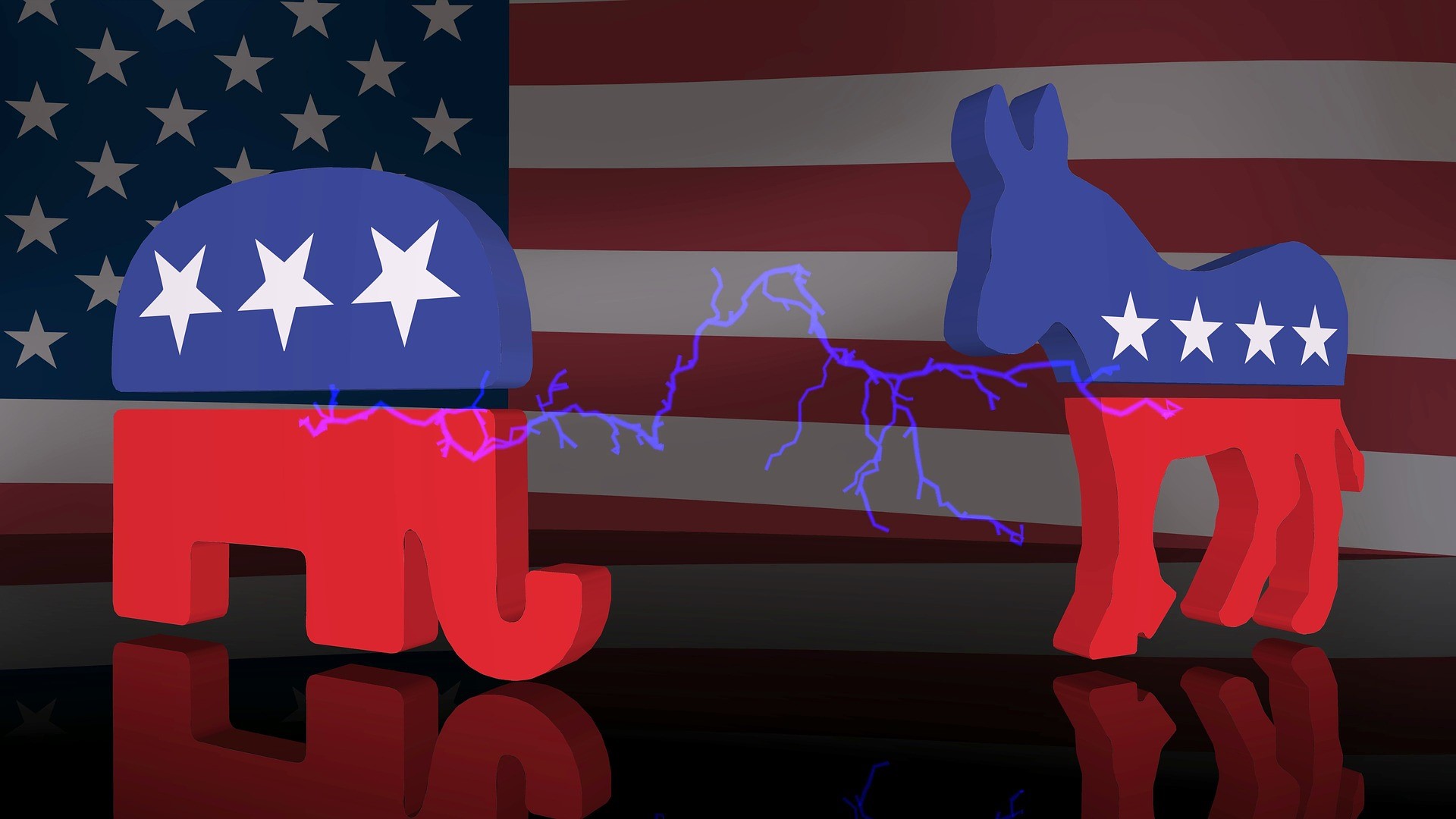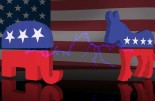BlueBay: The race in the US elections is too close to call
BlueBay: The race in the US elections is too close to call

Mark Dowding, CIO at BlueBay Asset Management, has issued his latest markets insight in which he focuses on the US elections, but also on the ECB and Q4 risks. While we feel that the US elections will take centre-stage over the coming weeks, it will be difficult to predict with any certainty how markets will react to different outcomes, thus making assigning accurate probabilities difficult. Risk assets ended the third quarter on an upbeat note, helped by somewhat firmer US economic data on business confidence and investment spending, as growing worries surrounding the coronavirus took a back seat for the time being, thanks to relatively muted hospitalisations and mortality rates.
The first US presidential debate ended in farce, with Donald Trump and Joe Biden trading insults like a couple of angry old men. It seems unlikely that voters learned much about the candidates they did not already know; however, with Democrats leading in the polls, this has led to a sense that Trump will need to do more to close the gap on his rival in the debates that follow.
That said, an analysis of swing states suggests to us that the race to the White House is too close to call – especially if Trump figures are under-reported, given the negative stigma attached to supporting the incumbent US president in current circumstances.
More generally, the US elections may overshadow a lot of what takes place in the next several weeks, but it is difficult to model how financial assets may react to different outcomes and how to assign accurate probabilities.This is perhaps even more so the case than normal, given the risks associated with a contested election and a disorderly transfer of power, even if we think that this narrative may be somewhat overexaggerated in some circles.
Ordinarily, we might expect equities to rally on a Trump win and sell off on a blue wave, based on the perception of low or high taxation. However, at this juncture, hopes for higher fiscal spending under a Biden administration could support sentiment, whereas concerns that a narrow Trump win may act as a catalyst for civil unrest could be problematic.
Eyeing European easing
In Europe, newsflow remains relatively light, and Covid-19 data continues to dominate discussion and analysis. After imposing new restrictions, it is possible that the ‘second wave’ may now show signs of losing momentum; however, with weather starting to turn colder, it is hard to see a material improvement in the short term.
For now, it also seems as if a majority of citizens are happy to support lockdown measures, even if the younger generation seems to be growing increasingly restless on the perception that they are the group paying the highest price when they have the lowest level of risk.
Thus far, the second wave has not had a material impact on economic data. However, inflation prints in the eurozone have surprised further to the downside. In the wake of this, there has been renewed speculation that the European Central Bank (ECB) needs to do more to ease policy in order to raise the trajectory of future consumer price indices.
At the same time, we sense that hawks in the ECB are loathe to add to bond purchases under the pandemic emergency purchase programme, with monetary policy looking a lot like deficit financing. Given that sovereign spreads are close to their lows for the year, this also removes the sense of urgency at the ECB, so we wouldn’t be surprised if a decision to do more is deferred until the first quarter of next year.
Brexit bargaining
Meanwhile, Brexit discussions have entered a critical phase, with recent comments suggesting that both sides are edging in the direction of compromise. We continue to look for a deal to be agreed in principal in the next two weeks and believe that this can support sterling in the short term.
However, the structural underperformance of the UK economy may limit how far sterling can rally in the medium term – even if the currency continues to appear extremely undervalued on a valuation basis, in our view.
At this juncture, the two sticking points have been with respect to fishing quotas and state aid. In both respects, it seems like a landing zone for discussions is now in sight. While there remains work to be done, the added pressure of Covid-19 means that there will be plenty to lose on both sides, should discussions break down.
Emerging info
Elsewhere, sentiment in emerging markets (EM) was somewhat impacted by military hostilities between Armenia and Azerbaijan, which threatened to draw Turkey and Russia into conflict. Thankfully, tempers appear to have cooled in the past few days, which has helped EM assets to trade more positively into the start of October.irm data from China has also seen the renminbi continue to make ground, which has helped to stabilise commodity prices after a rocky patch during the past month. At the same time, we continue to witness material divergence in policies and performance across EM countries and currencies.
Markets in the meantime
By contrast, corporate credit markets have been relatively calm over the past week. Credit spreads have narrowed as equity markets have recouped recent losses and as indicators of market-implied volatility have started to decline. Slower seasonal supply is also helping spreads to firm, even if flows into corporate credit products appear to be decelerating.
Looking ahead, it seems that uncertainty around US politics as well as Covid-19, could keep risk takers on the sidelines over the next few weeks. Today’s news that President Trump and his wife, Melania, have both tested positive for Covid could possibly exacerbate this uncertainty.
Later in November – as long as there is a coherent election outcome and should a vaccine announcement land before the end of 2020 – it is possible to foresee how markets could end the year on a more positive note, if they take a breather in the interim period. In this context, it may be possible to view this as a calendar quarter divided into two halves, with risks tilted a little more to the downside in the short term, but more to the upside in the longer term.
In the meantime, we can only hope that the tone of the political debate can improve on what we all witnessed a couple of days ago. You would like to think that age begets wisdom – but it is questionable whether that really is the case in this particular contest.








